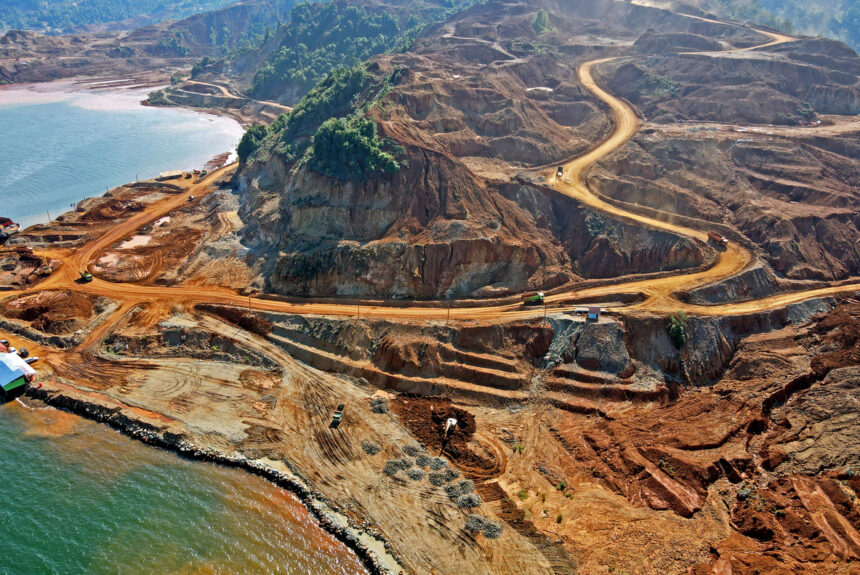During the Covid-19 nightmare, Americans learned a lot about supply chains. Surely you remember the empty shelves that had once held toilet paper or bleach or the shortage of shipping pallets for moving goods to the market. Even swimming pools suffered from a lack of chemicals for cleaning. Those were all things that, until the pandemic hit, we didn’t know we would have shortages of.
The pandemic revealed how much the U.S. relies on other nations for critical goods. While global trade is good and improves livelihoods, overreliance on one country, particularly if that country is hostile to American interests, is concerning. During Covid, we saw this play out with N95 masks from China. But America’s overreliance on China extends well beyond masks and to the critical minerals we need for many of the technologies we rely on every day. One of those minerals is nickel.
>>>READ: Chile May Hold the Future to a U.S. Cobalt Supply Chain
When Americans think of nickel, many think of five-cent pieces. But those are only made up of 25 percent nickel because the metal is now too expensive and rare to use for coinage. Nickel is important because it is useful in batteries, where it increases their ability to store energy.
There is currently one nickel mine in the U.S. and it may be exhausted by next year. But we know where to get more. “Indonesia, Australia, and the Philippines are the world’s largest nickel producers,” says author Ernest Scheyder. “Indonesia’s nickel production has nearly tripled since 2020, and the country now accounts for more than 50% of global supply.”
Too much of that supply now flows through China and Chinese-controlled companies, though. “About 90% of the smelting capacity, in particular, the capacity that’s particularly useful for getting the nickel up to the grade that’s necessary for putting it into an EV battery, is Chinese dominated,” an NPR podcast reported this year.
The U.S. needs to build secure supply lines with countries not named “China.” Washington leaders could make a good start by hammering out a free trade agreement with Indonesia. Doing so would make it easier to import nickel because the metal would then qualify for federal incentives through the tax code.
It is also important to remember that free trade is good in its own right. “Global free trade is responsible for raising billions of people out of poverty,” as our signature report Free Economies are Clean Economies puts it. “Free trade encourages countries to specialize, producing goods in which they have a comparative advantage and importing other goods from their trade partners. This benefits the economy and results in greater productivity, conserving resources and avoiding waste.”
International partnership is also important. The U.S. is a member of the Minerals Security Partnership, a collaboration of 13 nickel-using countries that are pooling assets to build safer, more diverse supply chains that don’t go through China.
“When you have one or two suppliers, it’s like anything else, you’re much more subject to natural disasters, earthquakes and the like,” says Jose Fernandez, State Department Undersecretary for Economic Growth, Energy, and the Environment. He says international teamwork is paying off. “After looking at these projects and then focusing on where we could add value, we actually were able to bring four projects to reality.”
One of those projects is in Australia, but it could end up smelting nickel from Indonesia for export to the U.S. That’s a good example of specialization, and it would help create a new, secure supply line for nickel.
>>>READ: Critical Minerals are Critical for Economic and National Security
We also need to allow more mining and processing here in the U.S. and in Canada. For example, policymakers should reverse the Biden administration’s 20-year moratorium on mining in northern Minnesota. Opening up mining on these 225,000 acres would provide new streams of copper, nickel, and cobalt and increase competition in the market. Importantly, increasing domestic mining would provide a stable supply of resources that are ethically sourced and in an environmentally responsible manner.
Over time, of course, the importance of nickel may diminish. Battery users, including Tesla, are already developing and deploying batteries that do not require nickel. Expect to see more innovation in the clean energy industry.
In the end, all energy sources are transitory. Humans moved from wood to coal to oil to natural gas. While conventional fuels are here to stay for the foreseeable future, there is a growing need for expanded zero-emission sources such as nuclear, hydropower, geothermal, solar, and wind. The “next big thing” like fusion or something we haven’t even thought of yet, might not require nickel at all. That will be a win for the environment, just as the switch from wood to natural gas has been.
For now, let’s have more trade for metals and other critical materials, from more places. Diversified supply chains that are subject to market forces are a win for people and the planet.
The views and opinions expressed are those of the author’s and do not necessarily reflect the official policy or position of C3.
